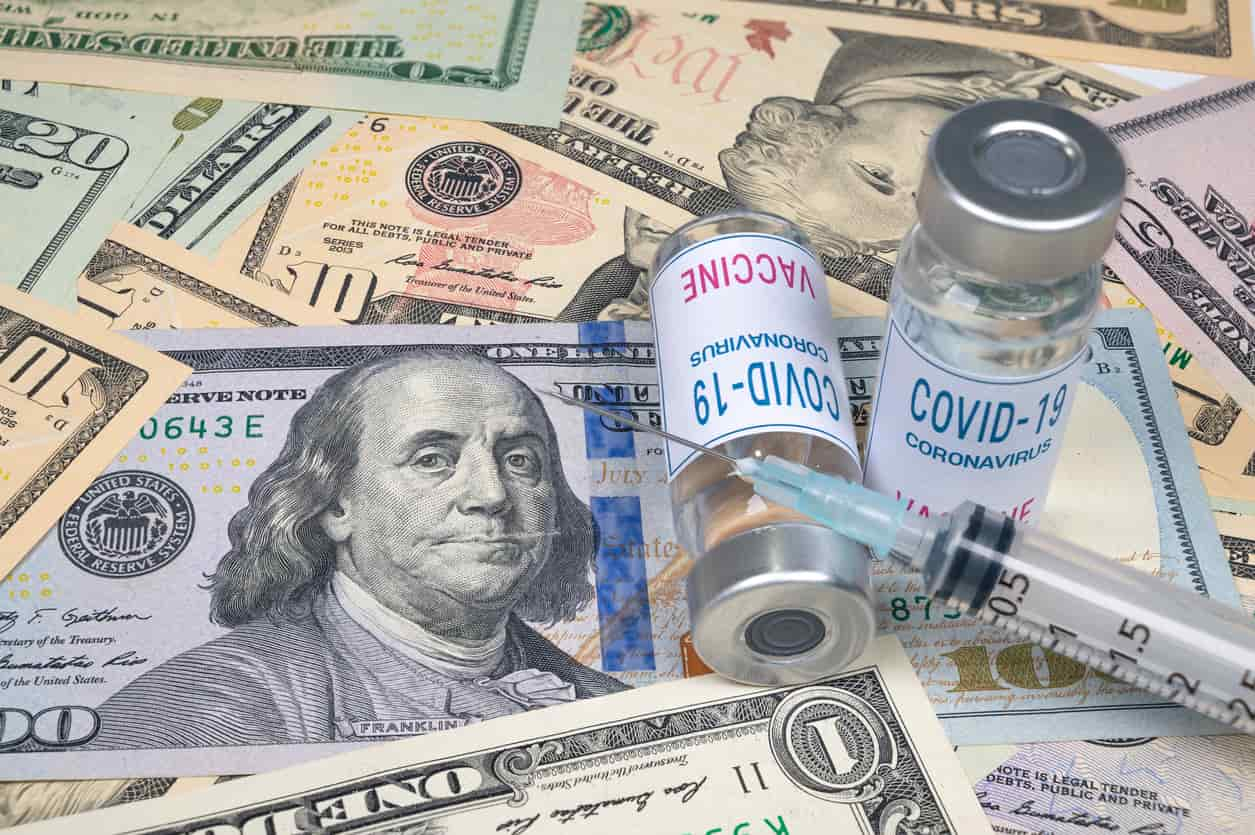A Review of the Pending Second Stimulus Package and Related Fraud Concerns
Back in September, we provided an overview of what’s happening with COVID-19 fraud, including a review of COVID-relief programs, government enforcement actions, and oversight problems.
Now that new federal funds and vaccines are on the horizon, it is time for an update.
A Second Chance at PPP
Nearly nine months after passing the CARES Act, Congress finally agreed on a second stimulus package. This second stimulus package – a $908 billion bill – is part of a $1.4 trillion spending package. After a tumultuous back-and-forth, the bill at last appears ready to go into effect.
One of the second stimulus package allocations is $325 billion for small business aid. Congress committed most of the small-business aid (around $284 billion) to reviving the Paycheck Protection Program (PPP) it created under the CARES Act. The original PPP was designed to help small businesses cover payroll, rent, and utilities with a one-time loan made by lenders but guaranteed by the Small Business Administration. These loans were to be forgiven if business owners complied with the PPP’s rules.
Now that the pandemic has lasted much longer than anyone anticipated, funds from the original PPP loans have run dry, threatening additional business shutdowns. The second set of PPP funds are earmarked not just for new loans but also to allow certain businesses the chance for a vital second loan.
When the original PPP program expired in August 2020, around $138 billion remained unspent. This was because the original PPP rules prevented small business owners from taking a second loan. With the second stimulus package, however, certain business owners can take a second loan if they meet additional qualifications including (1) the business had fewer than 300 employees, and (2) had a 25 percent drop in sales from a year earlier in at least one quarter. If a business meets these qualifications, it can obtain a second loan of up to $2 million.
Importantly, the second stimulus package also allocated $50 million to the Small Business Administration for audits and other efforts to address PPP fraud. This makes eminent sense, given how rife with fraud the first round of PPP was and the fact that the House Select Subcommittee on the Coronavirus Crisis identified more than $4 billion in potential PPP fraud. Some attributed this massive fraud to the speed with which the program was initially rolled out and all of the technical corrections that followed.
However, many simply took advantage of the lack of sufficient controls to commit blatant PPP fraud the first time around by inflating employee salaries or falsifying tax returns and bank statements. Thus, the $50 million question is whether this allocation will prove sufficient to combat PPP fraud.
 Potential Vaccine-Related Fraud Flagged as an Area of Concern
Potential Vaccine-Related Fraud Flagged as an Area of Concern
Another of the second stimulus package’s allocations is $69 billion for public health measures, including vaccination and testing. This includes:
(1) $20 billion for the Department of Health and Human Services’ Biomedical Advanced Research and Development Authority office for vaccine procurement and distribution;
(2) $9 billion to the Centers for Disease Control and Prevention (CDC) for the vaccination effort;
(3) $22 billion to states for test-and-trace programs.
However, amidst the good news of the vaccine distribution effort are vaccine-related fraud concerns.
On December 21, 2020, several federal agencies, including the Federal Bureau of Investigation (FBI), Department of Health and Human Services Office of Inspector General (HHS-OIG), and Centers for Medicare & Medicaid Services (CMS), warned the public about several emerging fraud schemes related to COVID-19 vaccines. This happened after the agencies received complaints of scammers using the public’s interest in COVID-19 vaccines to obtain personally identifiable information (PII) and money through various schemes.
The FBI, HHS-OIG, and CMS suggest that the public be aware of:
- Offers to undergo additional medical testing or procedures when obtaining a vaccine;
- Marketers offering to sell and/or ship doses of a vaccine, domestically or internationally, in exchange for payment of a deposit or fee;
- Unsolicited emails, telephone calls, or personal contact from someone claiming to be from a medical office, insurance company, or COVID-19 vaccine center requesting personal and/or medical information to determine recipients’ eligibility to participate in clinical vaccine trials or obtain the vaccine; and
- Advertisements for vaccines through social media platforms, email, telephone calls, online, or from unsolicited/unknown sources.
A False Claims Act Working Group and Continued Whistleblower Vigilance
The federal government appears to have acknowledged the current need for enhanced fraud-fighting measures when it announced the creation of a False Claims Act (FCA) Working Group on December 4, 2020.
The working group was formed to “enhance [HHS-OIG’s] partnership with the Department of Justice (DOJ) … and to combat fraud and abuse by identifying and focusing resources on those who seek to defraud the American taxpayer.” The FCA Working Group will consist of “former DOJ False Claims Act and healthcare fraud prosecutors, former private counsel for healthcare and life sciences companies, and HHS attorneys,” but did not name any specific members. The working group aims to focus on the worst offenders and prioritize those committing COVID-related fraud.
Although the underlying goals of the FCA Working Group are commendable, there are some questions as to exactly how it will function. For instance, the FCA Working Group is slated to include non-governmental attorneys but their precise roles in the government’s investigations and litigations are unknown.
Also, to the extent the FCA Working Group is focused on the worst offenders, many others will continue to fly under the radar. Thus, it is more important than ever for whistleblowers and their attorneys to be on the lookout for COVID-related fraud. At Bracker & Marcus LLC, we offer free consultations and want to hear about fraud of all kinds, including those related to COVID-19 so if you see something that you think is fraudulent, give us a call.
